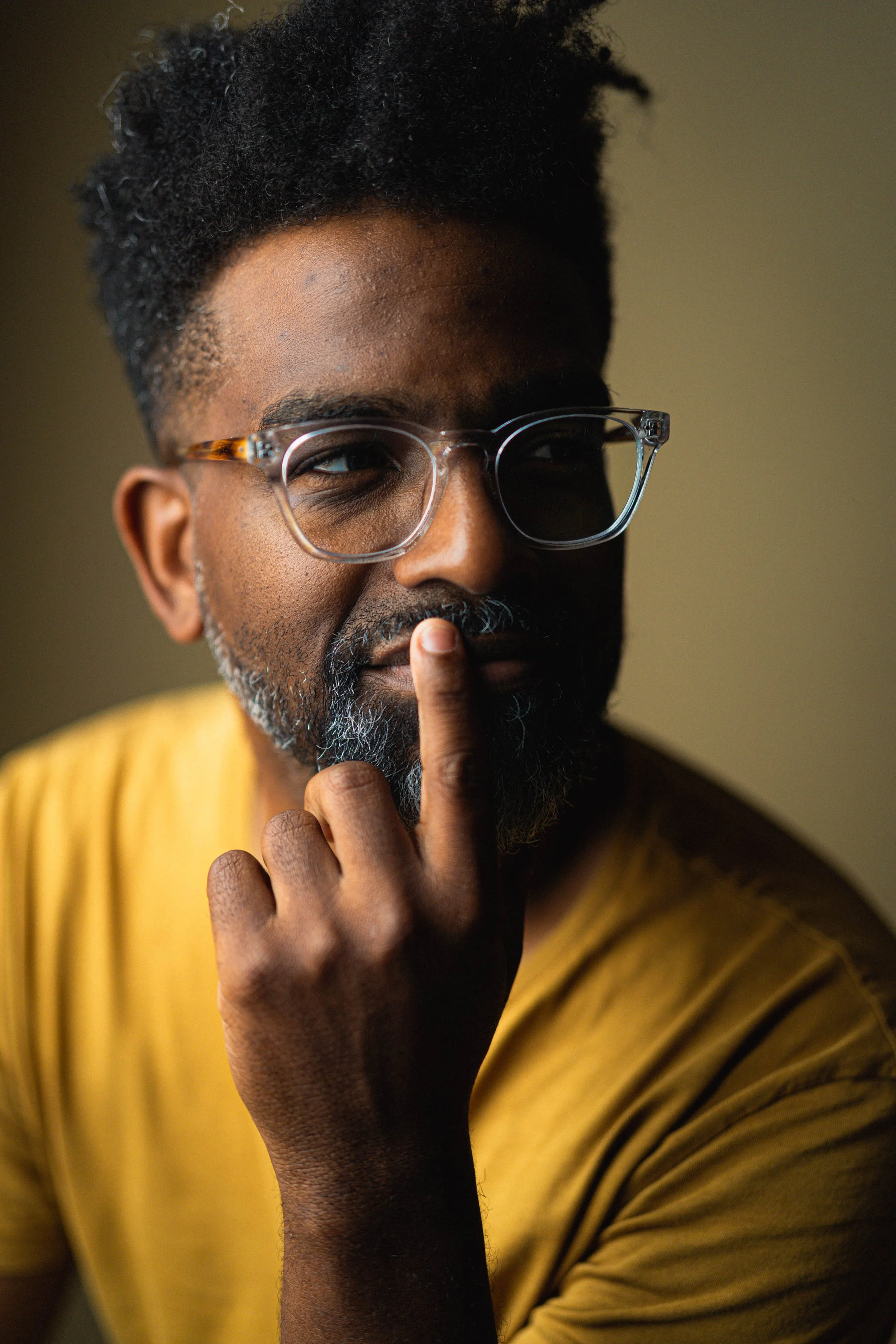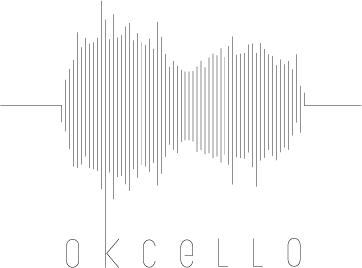In Style Magazine: 3/2021
Meet the Creative Class Making Atlanta the New Epicenter of American Arts
Okorie “OkCello” Johnson responds to InStyle’s questions about Atlanta
What do you love most about Atlanta?
Atlanta is where I became a Black man and an artist, found love with my wife, and where we chose to raise our daughters. It is where all my passions and talents have found purpose and expression. I believe that all of that could have only happened in Atlanta.
What makes you most proud of the city?
Honestly, the Blackness of it. I am so proud of this city's Black history, present, and future. If it is good and Black, it's here. If there is a problem for Black people across the country, it, too, is here. And that is not to say that Atlanta doesn't belong to other races, ethnicities, communities and perspectives. I'm sure other people from other groups feel as strongly about Atlanta as I do.
What have been the most significant changes in terms of the arts and culture scene?
Something happened in the late '80s and '90s where Black Atlantans, through their art, sent out beacons to creative, artistic, alternative Black folks from all over the country. We came, we stayed, we made art. It's harder to do now, though. The city is so much more expensive. But honestly that hasn't seemed to slow a single soul down.
What does the outside world need to know about ATL?
It's a magic city and the closest thing to Wakanda I know. Most important is the fact that Atlanta is the site of this new America we are building — and this past election is the evidence. Atlanta and its surrounding areas are the reason Georgia went Blue. You're welcome, America.

Atlanta cellist Okorie 'OkCello' Johnson on music, meaning and life transformed
ATLANTA - Atlanta cellist, composer, and storyteller Okorie Johnson — better known by his stage name, OkCello — is redefining what it means to be a modern musician. Blending genres like funk, Afrobeat, jazz, hip-hop, reggae, and classical, Johnson doesn’t just play music — he creates immersive sound journeys rooted in emotion, improvisation, and spirit.
OkCello is performing June 21 at the 2025 Johns Creek Juneteenth Celebration. Click here for information.
Johnson began playing the cello at age six, but it wasn’t until his 40th birthday that a turning point set his solo career in motion. At the time, he had stepped away from teaching to pursue filmmaking, but the project didn’t come to fruition. Sitting in uncertainty on that milestone day, he picked up his cello and began looping a bassline.
"I just started crying. I was kind of boohooing," he recalled. "That baseline was more eloquent than the screenplay I left the classroom to write."
That improvised session birthed the song "40," which sparked an entire concert series. Johnson performed monthly shows throughout 2015, including dates in D.C. and London. "The world was just different by the end of that year," he said. "I saw myself differently. Other people saw me differently."

Okorie “OkCello” Johnson On The Five Things You Need To Shine In The Music Industry
I wish someone told me that music is magic, and while virtuosic music can be magical, virtuosity does not make music magic. Eloquence does. Nothing is more moving than having something genuine and precious to say. So alwasy practice having something to say.
As a part of our interview series with leaders, stars, and rising stars in the music industry, we had the distinct pleasure of interviewing Okorie “OkCello” Johnson.
Okorie “OkCello” Johnson, an Atlanta-based cellist-composer, looper, improviser, and storyteller, has been featured on the Tamron Hall Show, has been a recipient of the Kennedy Center Office Hours Artist Residency, and was accepted as a sound installation artist for the Democratic Republic of Congo’s 2022 Biennale.
He is a co-composer and performer of a cello concerto Liminal, an Atlanta Concerto, which world premiered in February of 2023 with The Georgia Symphony Orchestra, he has scored a documentary for the Atlanta Journal Constitution named Imperfect Alibi, which won an regional Emmy, and he also scored a children’s theatre show for the Alliance Theatre named Head to Toe, which won a Suzi Bass Award.
He has opened for Maxwell and recorded and/or performed with India.Aire, De La Soul, and Big Boi of Outkast. He has 3 studio albums — Liminal, Resolve, and Beacon — and a Christmas EP, An Ok Christmas.
This Summer, Okorie will be releasing a brand-new album, continuing his journey of pushing the boundaries of the cello and storytelling through music. With a sound that blends deep-rooted traditions with innovative sonic landscapes, the upcoming project promises to further explore the emotional and spiritual resonance of his artistry. Fans can expect a powerful and immersive listening experience that reflects his evolving creative vision. His work centers on themes and expressions of the African Diaspora, while also exploring the phenomenon of musical prayer.

Supporting Mental Health with the Power of Storytelling
Walker was paired with Okorie Johnson, a local cellist and composer, to teach the course, Prevention of Mental and Behavioral Disorders. In this course, students learned about the risks and protective factors that influence mental disorders and explored how art can be used to change the narrative about mental health, build community, and bolster resilience. As a culminating project for the class, Johnson helped students write a poem based on class discussions about mental health and social justice. He then set it to music he composed and created a stirring video featuring students from the course.

Closer Look Summer Indie Artist Spotlight: OkCello
The cello is a unique instrument. It fits perfectly with the shape of the human body, making it easy to cradle and natural to embrace. Few other instruments boast a range of pitches as wide as that of the cello. And the warmth of its tone often elicits a pure and visceral experience for the listener.

60 Voices: Atlanta’s rising creative class is gaining new recognition on the national scene
Cellist and Reynoldstown resident Johnson and his wife, Heather Infantry—the executive director at Atlanta city-planning think tank Generator—met in Atlanta when Johnson was at Morehouse. They bounced between his hometown of Washington, D.C., and Atlanta before deciding that the combination of affordability, a nurturing community, and a past, present, and future of Black creativity have made this city the right place to raise their two daughters and carve out careers in the arts. Of primary importance to Johnson is holding onto that affordability that once lured him to Atlanta but has become imperiled by the city’s rapid growth and gentrification.

